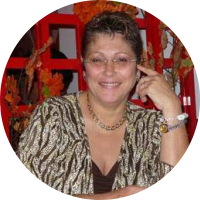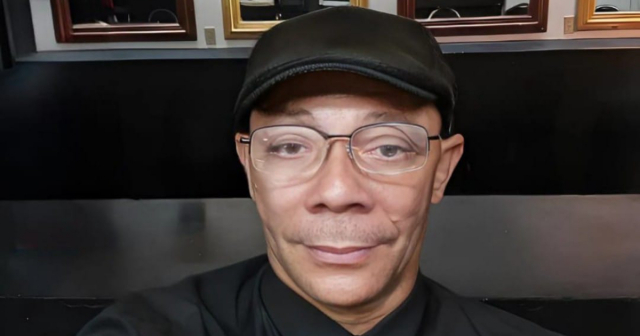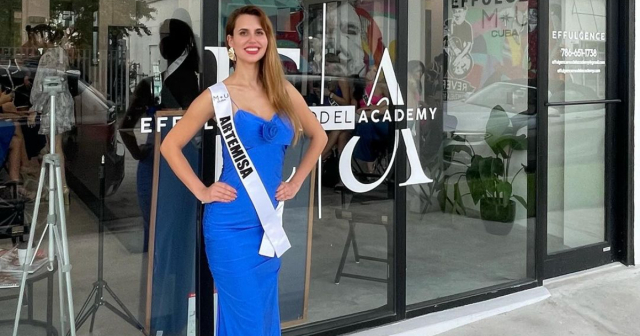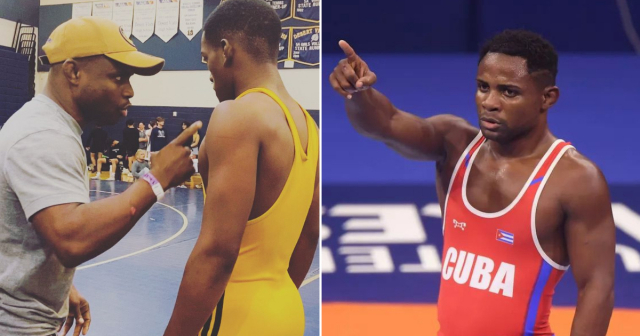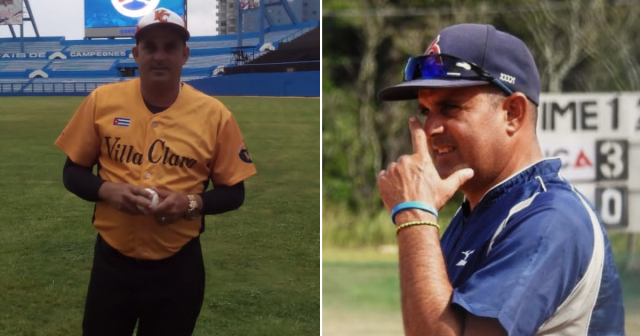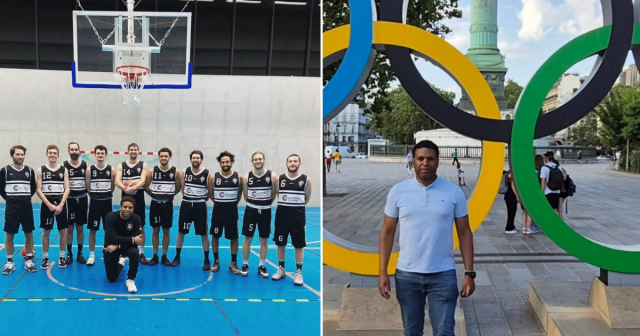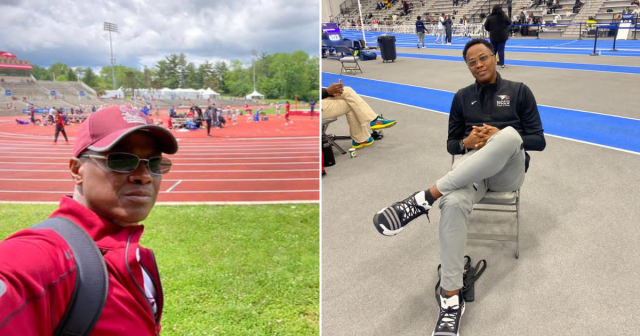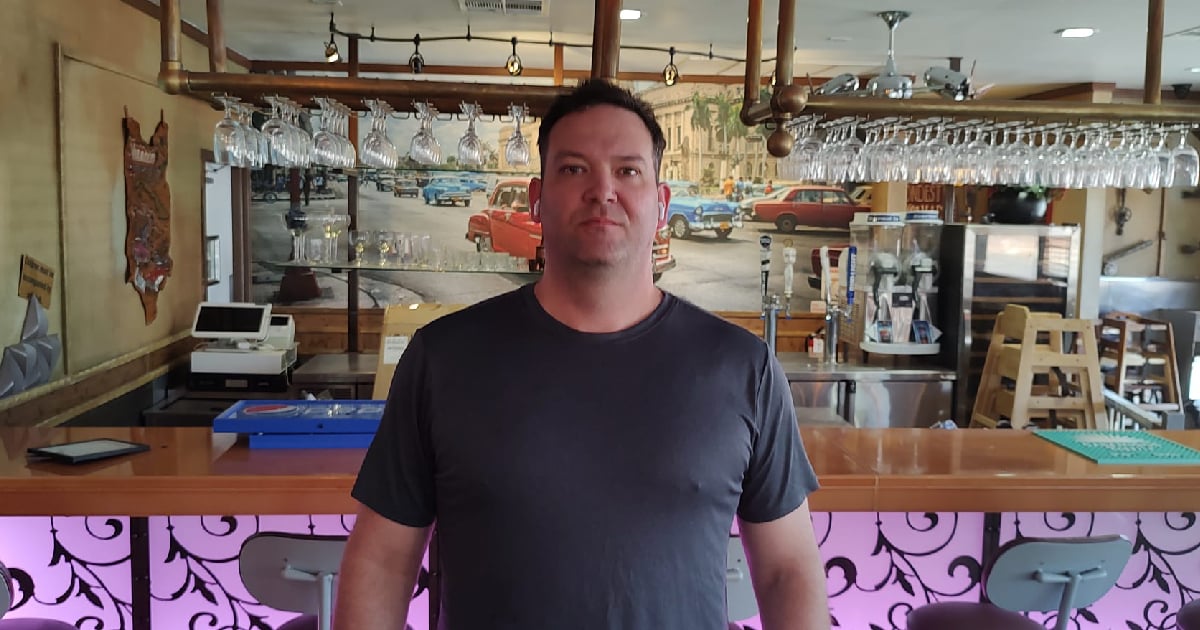
On a sunny and hot September afternoon in Las Vegas, I reunited with one of the most handsome polo players from Cuba, the Cienfuegos native Ernesto Sendón, who today works as a physiotherapist in that city in the state of Nevada. It was a shared joy because during his playing days, I covered his sport, and although he was still a youth, I knew him very well.
What do you think if we delve a little into his life, why he left the team, and how he arrived in the U.S.?
I was born in Cienfuegos in 1980. I currently live in Henderson, Nevada, USA. I am the only child of the marriage of Marta Martínez and Juan Sendón; both of my parents were involved in the Cuban revolution, from which I distanced myself.
I have a 15-year-old Cuban-German son who carries my name and is currently in Germany with his mother. I have lived in four countries: Cuba, Spain, Germany, and currently the United States of America, where I recently obtained American citizenship.
Always polo? At what age did you start, first coach, first pool...?
Before I begin to describe my sports career in water polo, I want to dedicate this interview to the thousands of compatriots who disappeared in the waters of the Florida Strait, who lost their lives in that dangerous journey while trying to reach freedom.
While in primary school "Guerrillero Heroico" in Cienfuegos, at the age of nine, coach Mario Medina was looking for tall children with tall relatives. Among them was me. My height was approximately 10 centimeters above the rest of my classroom. I caught his attention and enrolled in the Pre-EIDE "Eduardo García Delgado."
That's how I started in water polo in fourth grade, at 10 years old. In the first course, I learned to swim, and then in fifth grade, we did our first exercises with the water polo ball with Mario Medina himself. The training sessions were in the morning on the beaches of Cienfuegos, including Playa Alegre.
The years 1990 and 1991 passed, and there were still real conditions to practice sports on a massive scale. The soda bottle and the famous Cuban matahambre were the daily snack. While in sixth grade and still in Pre-EIDE, the EIDE coaches came to strengthen their teams, and they added five boys who were two years younger than those in EIDE, allowing us to move up one category.
It would be very lengthy to recount our adventures at that age; I managed to sneak in alongside Lázaro Dennis Capestany (the postman) in the Senior category school team, and we achieved a third place in a school competition held at the Vocacional Lenin in Havana, which was the only national championship where I didn't become a champion in my 10 years of sports career. After that, I secured first places in the Nationals and the Selectives until I retired in 2000. Wonderful memories, without a doubt!
You retired in 2000, but tell me something about your journey before that.
The high-performance stage was very difficult for us who had started our sport in the abundance of the 80s. I arrived at the "Marcelo Salado" National Swimming School in the 95-96 academic year, trained by the late Chacho, with whom I learned to value the qualities of a coach, man, and teammate… all at once! He was one of us on the team and defended the human values of the Cuban polo athlete until his death.
The food at "Marcelo Salado" was worse than the one at my house in Cienfuegos, but much worse... This didn’t happen in previous generations who had an abundance of the proteins necessary for our sport. Even then, things were bad, can you imagine now?
Regarding my achievements as an athlete, at the pioneer, school, youth, high performance, national, and international levels, such as at the Central American Swimming Championships in Havana 1997.
I have a funny anecdote: in the 1997 Youth Championships, I decided at the last minute the final match against Camagüey with a spectacular seven-meter goal, a great shot, hitting the crossbar, and it turns out I was naked because my swimsuit had been torn apart and I didn't have a spare one.
There was no other swim trunk! Luckily, the water was green, very green in that pool in Cumanayagua... hahaha. One laughs now, but at that moment, it wasn't funny.
I had a magnificent youth stage (1997-99). I always won the Occidentales, led by Jorge Rizo and featuring the Pinar player “El Little,” main attackers like Carlos Ortega and Juan Carlos Barrera, and me in defense.
Sadly for my generation, we can say little about international results. The INDER did not provide money for travel and, to make matters worse, they had the water polo team infiltrated with informants of all ages.
My team kicked off a harvest of poor results with a fifth place in a Youth Pan American Championship led by the worst coach I had in my sports career, Oscar Fernández.
Regarding what you mentioned about those bad companions, "infiltrators," about what you lived through and that has left such a mark on you...
Oh, Julita, can I tell you? This is the saddest part of my sports experience in high performance. The times we were going through were those of the economic downturn of the 90s or Special Period, as it is commonly known. My generation experienced the transition from "Marcelo Salado" to the Baraguá Swimming Complex.
As the situation throughout the country was one of great need, it was not surprising that the human aspect faced the same fate. To start with, in the transition from province to high performance, they left in Cienfuegos our leading goalscorer in the Nationals, Yordani Núñez, and as a surprise, we had in high performance, including accommodation, numerous children of INDER officials and children of former military personnel from the east of the country.
This fact destroyed Núñez and he stayed in the province, abandoning the sport out of so much frustration. That was something that bothered me because some were athletes (“Plan jaba”) of very low profile and used the resources of others who truly deserved them.
I have always been a person who confronts injustices, and sometimes I mentioned it in the group, unlike others from my province who even rejoiced in the misfortunes of others.
As if this were not enough, what I consider to be a high betrayal of a Cienfuegos coach materialized. In the second half of the 90s, there were many of us from Cienfuegos in Havana. The coach of the Cienfuegos youth and first division teams was Richard Rosell, who had a lot of international experience and, even though he had not been a regular on the big team, Richard had more sports achievements than current members from Cienfuegos on the Cuban big team at that time.
So, in that situation, Richard encountered a discipline problem that he solved in a certain way, and that way did not please one of the people from Cienfuegos on the national team. They began to gather to expel him and signed a paper to remove Richard from his position as coach, and they staged a mutiny. At that moment, I was part of the youth team, like many others; I was not yet part of the National team.
When someone informed me about what was being planned against Richard, I firmly responded: "Don't count on me for that." The situation ended with Richard being removed from his position. I found it immoral to wish to separate a provincial coach who only saw his family for two months a year.
One of the greats of the Southern polo and a human being who, as such, can make mistakes, but that was unfair. At 18 years old, I was not part of that maneuver, and it hurt me a lot. Later, I found out that Richard Rosell had become the assistant coach of the main team. I was also very happy to know that he was in the USA, and when I arrived, I called him.
He responded to me coldly, perhaps he sees me as part of that. He might not know yet that I wasn't involved in that dirty maneuver. I didn't sign and I didn't attend the meeting. But through these words, I want him to know that I felt deeply about everything and that I have always been a man of principles.
In spite of everything, you continued as a youth in the "Marcelo"...
Yes. In my very first year, 1995, I was the only boy from "Marcelo Salado" who, at 15 years old, began to play regularly in some matches with Occidentales from the Selectiva. The team director, Jorge Rizo, took advantage of Frank Almora's (Pinar del Río) skills as a utility player and combined him in all the positions, and sometimes I managed to slip in as a regular.
It was there that I faced the stellar Pedro Biart Camellar, him at the post and me in defense, and sometimes I would come out losing, but I also took the balls away from him on some occasions, and that’s how I started to experience a higher level and to take more hits than I had received before.
Injured septum, puncture wound in the jaw, and perforated cornea, plus several kicks in the testicles that took me out of circulation. I started adapting and was ready to face the challenge of my position defending the strongest man on the opposing team. Among them, besides Biart Camellar, were Ernesto García, José Alberto, and El Little.
I must say that, despite my young age, they never achieved absolute superiority over me, and there was parity in my actions against the established pole men, which kept me motivated until I retired.
Why are you leaving so young?
I withdrew disappointed, although with the satisfaction of having defended my difficult position and faced world-class players, who demonstrated it in the coming years in the European leagues. It was a tough situation against the four gigantic players from Camagüey, older than me, with more weight and body mass than me, who resorted to a strong game; there was a moment when I didn't have the strength to respond in the water.
I was being hit in front of our referee coach Oscar Fernández, but I never got out of the water or cried. I took quite a few hits. I regret that I never had the chance to gain weight and build muscle.
It would be very lengthy to recount all my adventures, or rather, abuses. Those boys, besides being older, ate at the "restaurant" of high-level performance, and I did not. There were only disadvantages. Given this situation, I decided to leave while still so young and with so much future ahead of me.
At what age did you leave Cuba?
Now I want to talk about our biggest international achievement, and it wasn't exactly a positive one: We were as a team the ones who marked the decline of Cuban water polo!!! And we did this under the direction of Oscar Fernández. My nightmare began in 1996-1997 during the preparation for the Youth World Championship that would be held in Cuba that summer.
But before that, something happened that led me to this situation, and it was very serious, caused by INDER's desire to "filter" young athletes to avoid defections abroad. When I arrived in Havana in 1995, a year and a half earlier, in 93-94, something unique had happened in Cuban sports, and my sport, water polo, was at the center of it: the defection of 70% of the national team, which had stayed behind at the Alamo Cup in California, United States.
It was the largest defection of a Cuban sports team of all time, and my generation arrived in 1995 to receive INDER's plan to stop defections based on creating informants in the Cuban polo teams. In my very first year (1995) at "Marcelo," I was 15 years old. We often had visits from the most well-known informant of my generation: Juan Carlos Barrera, alias "Pitinga." He frequented the "Marcelo" courts since he lived nearby. I would often watch his games, and he talked to me, at one point telling me that polo was a mess and that everything was over, that the only solution was to stay on the first trip, as there was no future. I, a still 15-year-old teenager, responded positively to his proposal. At that precise moment, his playing partner, a swimming coach from "Marcelo," approached me and said, "Stop talking to him; he’s the biggest asshole in Cuban polo."
I didn't quite understand everything, and as time went by, I thought of making a joke with the fish stick from the food, and immediately Julián del Campo, who was the national coordinator, came to me and told me that I couldn't make that joke anymore if I wanted to last in the polo.
Can you imagine the level of repression, of absurd harassment, of humiliation towards the human being?
That fact left me worried, and at the same time, I ran into Barrera again; I was already 16 and he tried to seduce me again, telling me that Pedro Biart was already playing in Spain and earning $5,000 a month. I knew he was a rat, and I just said, "I'm happy for him."
It was the year of the 1997 Youth World Cup in Havana, and Alemeneiro, the national commissioner, had brought in the executioner of Oscar Fernández to lead the Youth team. Oscar started to push me aside and question why I was there. I didn't understand, considering I had been brought in by El Baba from the "Marcelo" because I had earned my spot on the field during the selections with the Western team.
The result was that I was left out of the altitude training trip in Mexico. After that, I was never the same. I never again had the desire to train hard, but I had the help of Jorge Rizo who continued to keep me as a regular in the qualifiers, and there I stood out at my best and kept myself motivated.
My joyful moments were only with the Occidentales team, where I remained undefeated as the consecutive champion team. Fernández’s negative actions for Cuban polo were numerous; among them, the inclusion of Morejón (Villa Clara) as a regular player in the Youth World Championship, a player who could not hold the ball due to his small hands. Also adding Andy, a former swimmer (Cienfuegos), as a regular player, another player who did not have the adequate ball skills for that level.
He took only one goalkeeper to the Youth Pan American Championship, and that cost them the first defeat in the history of a Cuban team against Puerto Rico, as the only goalkeeper on our team was out of the game due to frustration.
It took training time to talk about politics and blame the United States for everything while glorifying their deceased Cuban revolution. A total failure that wiped out an entire generation of polo players in one fell swoop. This executioner, Oscar Fernández, eliminated or severely hindered the development of many good players like Omar, Capestany, Maikel, Argüelles… just to name a few.
He dismissed players who were already in the "Marcelo," such as Esbiel, Erick (a left-handed player from Villa Clara), and two others from Havana whose names I don't remember.
In exchange, he brought in provincial players whom he also ended up rejecting during the preparation year for the Pan American Games. And as a final blow, he eliminated me, destroying me as a player. When I finished my career in the youth category, I managed to join the senior team as a guest. But the reality was that I was a shell of my former self, psychologically speaking. At 19, I saw no future for myself. After so many blows and suffering caused by a coach who was destroying so many athletes. Imagine retiring at 19!
You leave me astonished with those anecdotes. That was really not within the reach of us, the journalists; at least, not within my reach.
Oh, Julita, let me tell you briefly what water polo had become. In fact, after I left, they didn't travel for four years. The living conditions... what for...?
Look, in my province, I would lay my head on the pillow and start imagining my life upon arriving at a national school. My dreams were of a room with two beds to share with a roommate. Abundant food and sportswear with the four letters of CUBA... NONE of that happened!!!
The rooms in the "Marcelo" had three bunk beds. One bathroom with a bucket toilet and the shower was a bare, rusty pipe. The mirror was a piece of old mirror the size of a hand that we all shared. There was no sportswear, and the food was the same as in any camp, nothing that a high-performance athlete would eat.
We didn't have transportation to go to the province, and if we decided to go, it was on our own and asking for a "bottle" (a ride) to cover 300 kilometers to have our parents serve us a decent meal and wash our clothes.
Was it supposed to improve by upgrading…? Well, no. We arrived at the "Baraguá" pool complex to live like animals in a room where there were 20 human beings breathing and forcefully putting up with each other.
At the door of the room, the aluminum parts were falling off, and we had to fix it among ourselves, and we had an air conditioner for a gigantic room. We were supposed to prepare well for the 1997 Youth World Cup, and that was the agreement.
The following year, they renovated the CEAR and we improved the dormitory a bit; we were eight in one room. The food had gotten even worse. The diet was the same as at a rural school, but with one addition. The water was raw brown sugar water in bulk and therefore... full of giardia (parasites). The cooks at that school developed a strategy that seemed to come from another planet... I noticed that the milk at breakfast was hot enough to melt a plastic cup. So, we had to bring an aluminum cup from the province. One morning, I got ready for breakfast and saw that the cooks were rotating the milk with two aluminum tanks, keeping one warm and serving the other while waiting to reheat it.
That left me speechless, and at that moment I understood why the milk was served so hot and no one wanted it. It was in excess, and that’s how they stole it. But now comes the part of the snack, which consisted of sugar water and old bread, either plain or filled with sugar, but it was not served or prepared by the cooks.
Oscar Fernández would organize us into groups and would rotate us to make sugar water for ourselves and distribute it, which I opposed as it was disrespectful to us as national high-performance athletes. To that inappropriate task from Oscar, we must add clearing the surroundings of the pool, scraping the empty pool, and helping to repair and paint the pool. In other words, "voluntary" work that was actually meant to measure you and create his dream team of champion workers full of giardias and hunger… haha.
There was a time when we found out that the heavyweights in combat sports were being given a double portion of food (among them was the current Olympic champion in Greco-Roman wrestling, Mijaín López). For Ives, our captain, to talk to Oscar about the matter would be a waste of time, so I decided to ask for our right to have a double portion given that our sport is of very high intensity.
Oscar's response was a gesture of disdain and he turned his head to ignore me. The only thing one could expect from such a being were the readings from Juventud Rebelde - a communist newspaper - and the stories of his childhood without toys. He said he had worked loading sugar bags at the dock to become a coach thanks to the revolution, and also that the bad food was the fault of the imperialist blockade... They didn't care about us at all!!
He spoke of the people from Cienfuegos with contempt and he did it to our faces (there were eight of us from Cienfuegos there).
Getting ready for the 1998 Youth Pan American Games - now comes the training part and this was the height of absurdity! - Oscar was the referee in our practice games against the younger or senior team and to our surprise, he allowed dirty play against his own team that he was preparing and let the play continue. Capestany and I were speechless and Omar was sometimes in tears. We didn't know what to do in the face of such an idiot...!
It was a desperate situation, with two months to go until the Pan American Games, it changed everyone's positions and took me, Omar, and Noquis out of the team and told us we were no longer in the pre-selection. We looked at each other and couldn't find a solution. Then he called us back, one month before the Pan American Games, and he had another unpleasant surprise for us.
He had stated that 30 days before the competition, only eight players could enter the Olympic dining hall (where the elite from other sports ate), when our preliminary selection consisted of 15 athletes. For the eight who were favored, we had no choice but to beg them to bring us a steak, a croquette, or whatever it was... To sum up... I had been left out of my preliminary selection; I was not among those eight, but still, in the game against Argentina, I gifted my country three goals and Omar another three, both of us being the best players in the match.
What do you think?
COMMENTFiled under:
